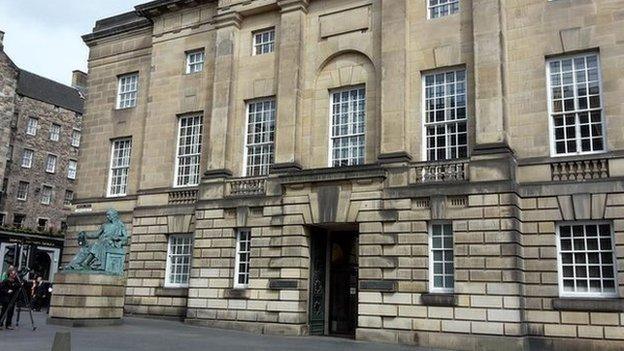Terror trial hears of Aberdeen 'Islamic map link'
- Published
A computer expert has told a court a USB stick linked to an alleged terrorism suspect contained a map detailing the locations of five places of Islamic worship in Aberdeen.
Connor Ward, 25, from Banff, Aberdeenshire, denies breaching the Terrorism Act.
Computer expert James Borwick told the High Court in Edinburgh police asked him in 2016 to examine equipment.
He found a file called Aberdeen with a map document.
The third day of the trial heard how pins lettered A to E were placed at the locations of five places of Islamic worship.
At the side of the document, the five postal addresses of the religious centres were given.
The court heard that the author of the map document was a man called Connor Ward.
Dark web
Mr Borwick also told the court that a search of a computer revealed that a number of Google searches had been made in 2014.
Some of the searches were for 'fake police warrant cards', 'how to make a flash grenade' and 'how to make inert bullets work'.
Mr Borwick told the court that the computer contained a piece of software which would allow users to surf the 'dark web' and access websites which sell explosives and drugs.
Prosecution lawyer Richard Goddard asked: "Does it prevent law enforcement from tracking user activity?"
Mr Borwick replied: "Yes it does."
Prosecutors allege that Mr Ward collected information of a kind likely to be useful to someone preparing an act of terrorism.
The trial, before judge Lord Burns, continues.
- Published15 February 2018

- Published14 February 2018
